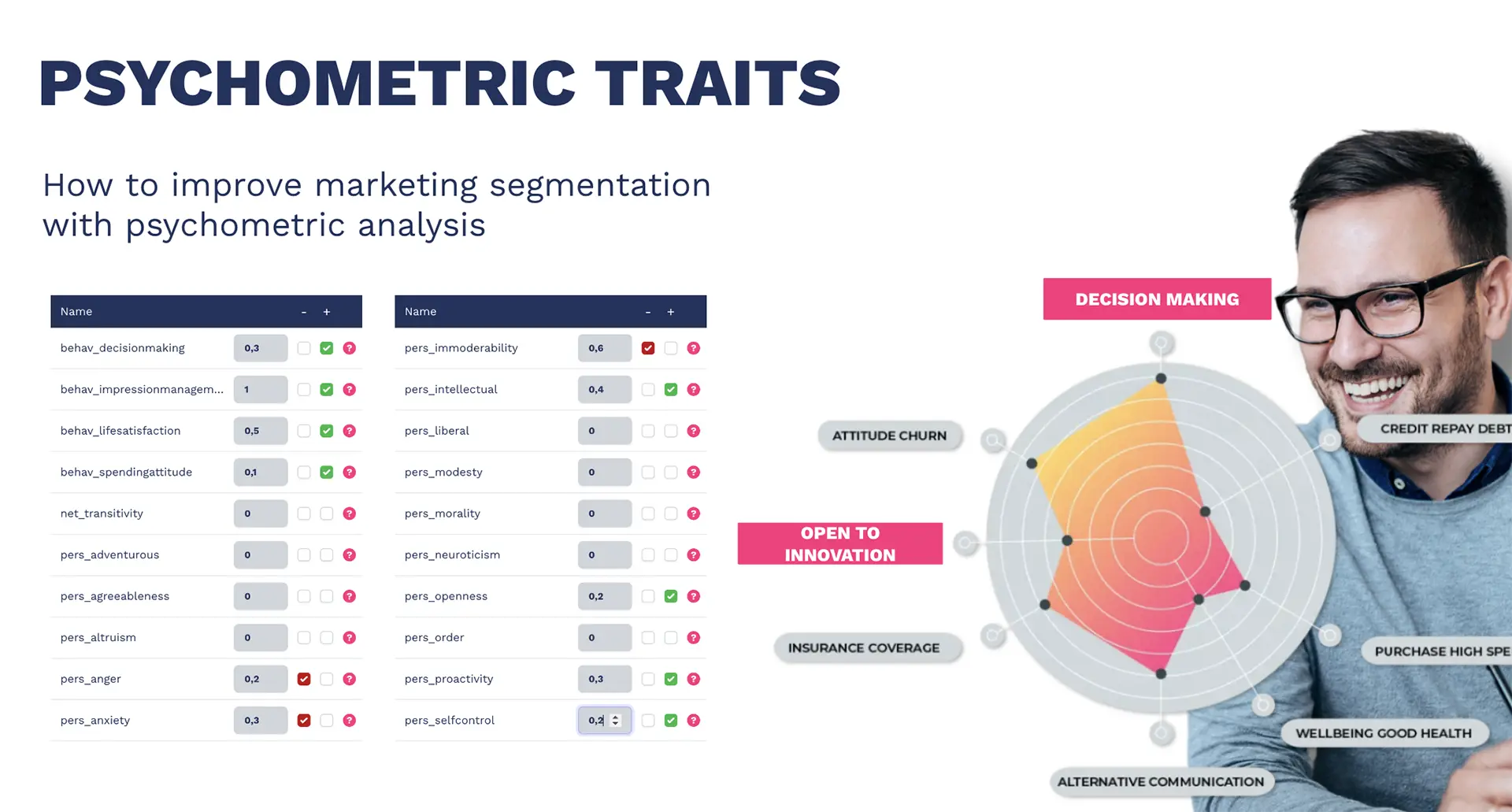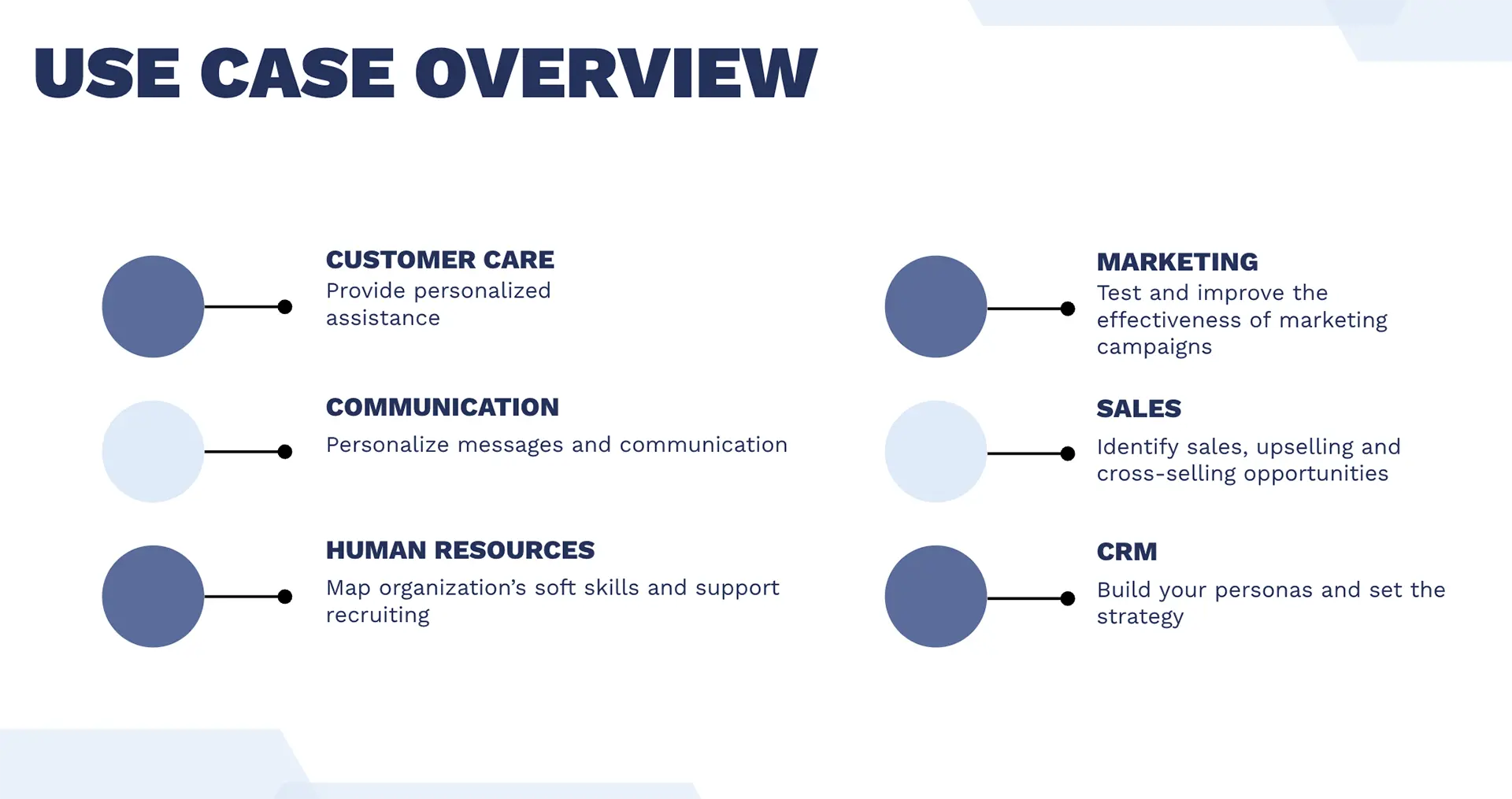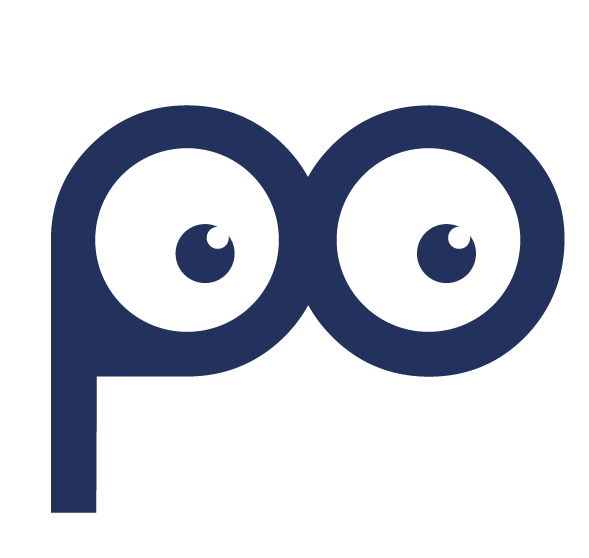Marketing Segmentation with Psychometric Traits
Marketing segmentation with psychometric traits is a crucial process to identify and reach the right audience.
However, traditional techniques based on demographic and behavioral factors, while useful, often fail to provide a complete understanding of customers.
This is where marketing segmentation with psychometric traits comes in—an innovative approach that uses psychological characteristics to enhance the accuracy of marketing campaigns.
Written by Portrait team


What are psychometric traits in marketing?
Psychometric traits are measurable psychological characteristics of a person, obtained through tools like standardized tests and questionnaires. These traits include aspects of personality, cognitive abilities, and behavioral preferences, such as extroversion, emotional stability, openness to experience, and problem-solving abilities.
Segmentation based on psychometric traits goes beyond surface-level data, allowing brands to better understand the deeper needs and motivations of their audience. This level of understanding enables the creation of more effective and targeted marketing campaigns.

How AI supports marketing segmentation
Thanks to artificial intelligence (AI), it is now possible to accurately and efficiently detect and analyze consumers’ psychometric traits on a large scale. AI gathers and interprets data through online interactions and purchasing behaviors, enabling the identification of stable characteristics that influence customer decisions.
Unlike other techniques, such as sentiment analysis, which focuses on momentary emotions, psychometric segmentation provides a long-term view of customers. This is particularly useful for planning lasting marketing strategies that address deep-seated needs rather than temporary stimuli.

More precise and effective marketing strategies
Segmentation techniques based on age, gender, demographic information, and purchase history have been part of marketing for decades. However, psychometric analysis allows us to identify the ideal target within a segment and create tailored messages aimed at increasing conversion and sales opportunities.
For example, if you are positioning a new product aimed at people open to trying new things, you can enrich the target segment with additional insights, such as churn risk, openness to innovation, or preference for a direct and emotional communication style. This enhanced approach allows for more precise and effective marketing strategies.


Benefits of Marketing Segmentation with Psychometric Traits
One to one personalization: traditional segmentation divides the market based on data like age, gender, and purchase history. By adding psychometric traits, brands can create highly personalized messages that speak directly to the preferences and values of each individual customer.
Better target identification: psychometric traits allow for more precise identification of customers most likely to respond positively to a campaign. For example, when promoting an innovative product, you can target individuals who are open to new experiences and less risk-averse.
Tailored Communication: knowing a customer’s psychological traits allows brands to adjust the tone and content of communication. An introverted person, for example, might prefer a more discreet and informative approach, while an extroverted customer may respond better to an energetic and engaging message.
Increased loyalty: creating a strong emotional connection with customers by addressing their psychometric traits fosters loyalty. Customers who feel understood and valued are more likely to remain loyal to a brand.


Practical Applications of Psychometric Segmentation
Marketing segmentation with psychometric traits can be applied across various business sectors. Here are some examples:
Customer Care: operators can identify a customer’s psychological traits and adapt their support services to offer more empathetic and personalized assistance.
Sales: sales agents can use psychometric traits to select customers most likely to be interested in a new product, improving conversion opportunities.
E-commerce: online retailers can use this data to personalize the shopping experience, offering products or services based on customers’ psychological preferences, thereby increasing the likelihood of purchase.

Conclusions
Marketing segmentation with psychometric traits represents a breakthrough in modern marketing, offering an unprecedented level of precision and personalization.
By analyzing psychological traits, brands can improve the quality of their interactions with customers, increase conversions, and strengthen loyalty. In a world where consumers increasingly seek tailored experiences, this approach provides a crucial competitive advantage for businesses looking to stay ahead of the curve.
Source: Deloitte
More articles from our blog

AI-Driven Loyalty Strategy
Establishing an AI-driven loyalty strategy means going beyond behavioral data, understanding customer values and motivations, and anticipating their needs. With an ethical and transparent approach, artificial intelligence allows you to build strong, lasting relationships, transforming the customer experience into a true competitive advantage.

AI predictive capabilities
In the webinar “Understanding People with AI”, organized by Athics, Professor Marco Piastra (University of Pavia) and Professor Patrizia Catellani (Università Cattolica del Sacro Cuore in Milan) explored the predictive capabilities of AI, presenting the recent publication on the use of Large Language Models in the estimation of personality traits.

We are bringing Artificial Intelligence in Sanremo
An example of how artificial intelligence in music can reveal more about authors personalities and song’s main emotional traits

FOLLOW US ON LINKEDIN
Curious to know more about marketing segmentationwith psychometric traits? Follow us on Linkedin.

Headquarter
Via Meuccio Ruini 10, 42124 - Reggio Emilia (RE)
